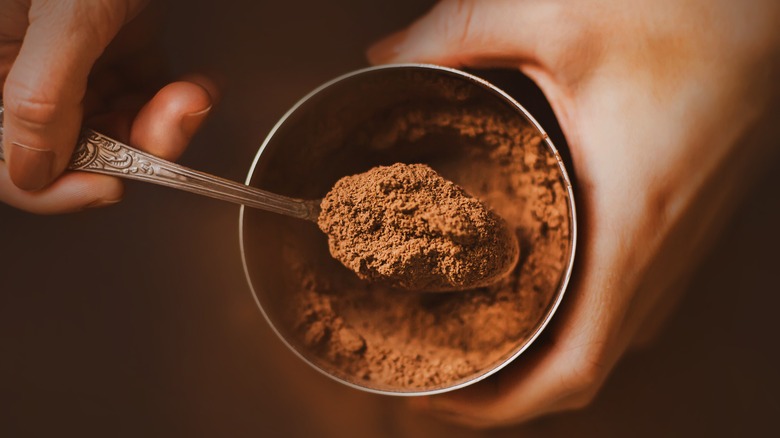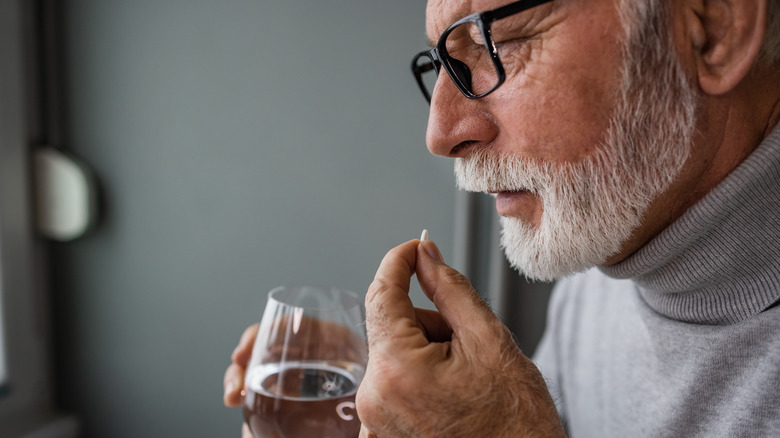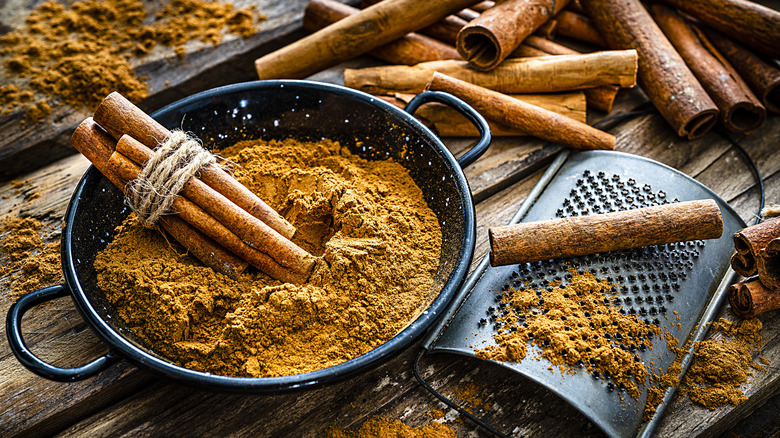Avoid Eating Too Much Cinnamon If You Take These Medications
Derived from cinnamon tree bark, this flavorful spice takes two common forms: Ceylon cinnamon and cassia cinnamon. While Ceylon cinnamon — or "true" cinnamon — is primarily produced out of Sri Lanka, cassia cinnamon is native to regions of southeast Asia and is what we tend to find on store shelves in the U.S. Research has suggested a possible link between cinnamon consumption and relief from various digestive issues or reductions in blood sugar levels in patients with diabetes. However, the existing evidence is not definitive.
We often think of drug interactions as side effects related to the combined use of multiple prescription medications or over-the-counter (OTC) supplements. While this is certainly true, the foods we eat can prompt negative drug interactions, too. Have you ever heard how grapefruit juice doesn't always play nice with other drugs? The same can be said for cinnamon when it comes to blood pressure statin medications, reports Healthline.
Consumption of cinnamon and statin drugs may cause liver issues
Statin medications are used to lower patient cholesterol levels. When taken daily, the drug works by blocking the liver's production of cholesterol as well as ridding the organ of any excess cholesterol. By taking these drugs, at-risk patients become less prone to stroke or heart attack.
But be sure to inform your doctor about all medications you're using before starting a statin prescription — and you don't want to leave out any herbs or supplements, either. 2015 research published in the American Journal of Case Reports detailed the case of a woman in her early 70s who had been taking a statin medication for treatment of coronary artery disease for several months before starting use of cinnamon supplements a week prior to being admitted to the hospital for stomach pain, diarrhea, and vomiting. It was determined that the patient had developed hepatitis (liver inflammation) from the combined use of statin medication and cinnamon supplements.
Cinnamon contains coumarin
The cause of illness was attributed to cassia cinnamon's coumarin content (via the American Journal of Case Reports). When ingested in excess, the compound can cause liver toxicity. Additionally, for patients taking blood sugar-lowering drugs for diabetes, cinnamon may exacerbate these effects, which can lead to hypoglycemia (low blood sugar).
Consuming cinnamon in typical amounts that we might occasionally mix into a batch of French toast or a cup of apple cider is usually not cause for concern. It is generally considered safe to consume up to 0.05 milligrams of coumarin per pound of body weight each day. Depending on one's weight, this limit can often be met with just 1 teaspoon of cassia cinnamon. Although cassia cinnamon is considerably higher in coumarin than Ceylon cinnamon, both should still be consumed mindfully and only from time to time. If you have any underlying health conditions, consult with your doctor regarding your cinnamon intake.



